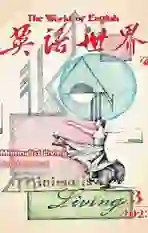What Is Minimalism?何为极简主义?
2023-05-30邓梦寒/译
邓梦寒/译
Part of minimalism is the deliberate alternative and counter to consumerism.
从某些方面看,极简主义是特别针对消费主义的一种替代和反对。
Consumerism has become increasingly stitched into the way we live our lives. We go to work, we earn our money, we might save a little and we spend the rest. What we spend our money on will vary from person to person, but generally we buy stuff. Clothes, shoes, gadgets, books, games, cars, and whatever else we might want or think we need.
消费主义与我们的生活方式日益相融。我们工作、挣钱,可能会把钱存上一点儿,其余都花掉。具体消费因人而异,但通常我们会买东西——衣服、鞋子、小工具、书籍、游戏、汽车,以及我们可能想要或认为需要的其他任何东西。
The risk with this way of life is lifestyle creep. Lifestyle creep is what happens when our purchasing keeps up with our increase in wage. When were paid more, that extra income doesnt go into our savings or into a property, stocks or other investments, it fuels our spending.
这样生活的风险是引发生活方式蠕变。生活方式蠕变是消费跟随工资增长而增加所导致的。我们得到更多报酬时,额外的收入不会进入我们的储蓄、房产、股票或其他投资,而会刺激我们的消费。
In an age where were bombarded with messages to eat more, do more, spend more, own more, get new things, buy the new phone, car, house, clothes and everything in between, there is a more modest philosophy of living that flies in the face of traditional modern materialism. That philosophy is minimalism, the act of reducing the things we own, rather than expanding them.
这个时代,我们被各种信息轰炸,要我们多吃、多做、多花、多拥有,要我们获得新东西,买新手机、汽车、房子、衣服等等一切——在这样的时代,有一种更适度的生活哲学与传统的现代物质主义背道而驰。这种哲学就是极简主义,它倡导减少而非增加我们所拥有的东西。
What is a minimalist
什么是极简主义者
If minimalism is the reduction in the things we own, then a minimalist is simply someone that makes an effort to reduce what they have, and they do this for a number of different reasons.
如果说极简主义是减少拥有的东西,那么极简主义者就是努力减少自己所拥有之物的人,他们这么做的原因各种各样。
The minimalist is one who makes a deliberate effort to reduce ones scope of life to include only what is most essential. All fat and excess is cut away from life, the frills consciously severed, leaving only that which is necessary for living well.
極简主义者会刻意缩小自己的生活范围,只留下最重要的。剔除生活中所有多余的,有意识地断绝不必要的花费,只留下好好生活所必需的东西。
The limits a minimalist places on themselves will be defined by what they personally deem essential. Some might need to care for children or elderly parents, meaning that their essentials will be different to someone else. Another may decide that books or music are irreplaceable as a source of happiness, meaning that their boundaries of minimalism will include these things while others may not.
极简主义者的自我限制将取决于他们个人看来最重要的事。有些人可能需要照顾孩子或年迈的父母,这意味着他们心中最重要的将与其他人不同。有些人可能认为书籍或音乐是不可替代的快乐源泉,这说明这些东西对他们来说必不可少,而对其他人则可能不是。
However they all have one thing in common—the minimalist has a clearly defined line at which their minimalism ends and excess begins.
然而,极简主义者都有一个共同点——他们有一条明确的界线,一旦越过就不再是极简,而是过度了。
Benefits of minimalism
极简主义的好处
Minimalism is growing as a way of life and its doing so for good reason. Theres a lot that we can benefit from when we narrow the scope of what we own:
极简主义日渐成为一种生活方式,这种趋势理所当然。我们缩小自己所拥有之物的规模,可能受益良多:
SPEND LESS
减少开支
Minimalism limits the risk of lifestyle creep. If we keep our lifestyle stable and our expenses stay the same then any additional income we get from a pay rise, a promotion or a bonus will become an asset. The more we reduce the complexity of our life the less were at risk of lifestyle creep and the more we can save for what really matters to us.
極简主义降低了生活方式蠕变的风险。如果我们保持生活方式稳定并且开支不变,那么从加薪、晋升或奖金中获得的任何额外收入都将成为一种资产。我们越是降低生活的复杂性,生活方式蠕变的风险就越低,也就能省下越多的钱用于真正重要的事。
LESS STRESS
减轻压力
A decluttered house and environment is a less stressful environment. Theres less to think about, less to clean, less to maintain, less to move and less to worry about breaking or replacing. In minimising the things around us we limit the impact those things can have on our peace of mind.
整洁的房子和环境带给人的压力较小。考虑更少、打扫更少、维护更少、挪动更少,对损坏或更换的担心也更少。通过尽量减少周围的事物,可以限制那些事物对我们内心平静的影响。
Not only that, but we often become attached to our possessions, so the less we have, the less attachment we have and the less stress we experience when something goes missing, breaks, or gets stolen.
不仅如此,我们还经常对所拥有的东西产生依赖感,因此,拥有的越少,依赖感就会越弱,东西丢失、损坏或被盗时感受到的压力就会越小。
MORE FREEDOM
更多自由
Our sense of freedom is often influenced by what we feel attached to and what we feel tied to. Fewer belongings will naturally reduce the influence that our things have over our feelings of attachment and this, in turn, will help us feel more free and independent of our belongings.
我们的自由感时常受到所依赖和被牵绊的事物影响。拥有的东西少了,我们对事物依赖所带来的影响自然就减轻了,而这又会帮助我们提升自由感、减少对事物的依赖。
(译者单位:上海交通大学)
